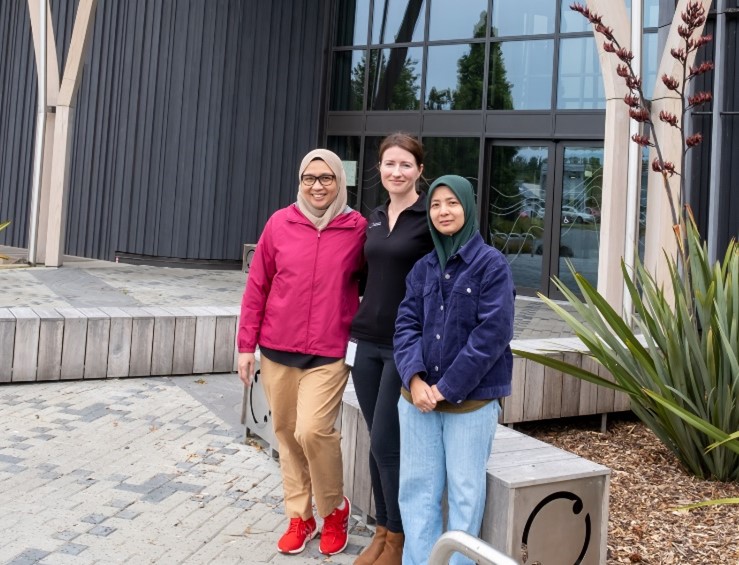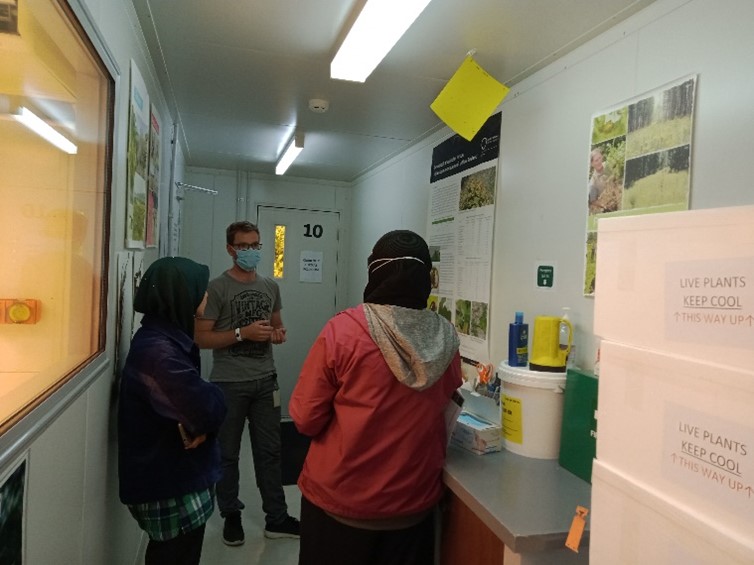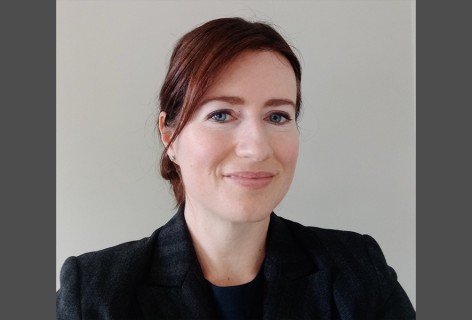Mutualism, Malaysia and Molecular Biology
The weed biocontrol team were needing to complete surveys and collect leaf material and potential agents in Malaysia for some key pasture weeds in Vanuatu and the wider Pacific as part of the Managing Invasive Species for Climate Change Adaptation in the Pacific (MISCCAP) project. In their search for collaborators, they encountered Dr Nor Asiah Binti Ismail and Ms Nurin Izzati Binti Mohd Zulkifli, from the Malaysian Agricultural Research and Development Institute (MARDI). MARDI was on the search for weed biocontrol experts specifically with molecular knowledge that could help them expand their own molecular capabilities within their weed biocontrol program in Malaysia.
The Malaysian agricultural system is still highly reliant on herbicide use. The need to switch to a more environmentally friendly, targeted and effective long-term alternative has seen a rise in the utilisation of biocontrol, but there is currently no molecular component to support this work. Using molecular tools to match weed genotypes to source locations in the native range is an important step in biocontrol because it can increase the likelihood of finding suitable agents that will successfully attack the target weeds. Genetically identifying the species to be used as potential control agents is also an important complement to morphological identification.

Image: Nurin, Caroline and Asiah (left to right).
It was a perfect match. MARDI had the resources and expertise available to assist with the weed biocontrol teams MISCCAP project requirements and MWLR had the skills and expertise to help MARDI step up into the molecular space.
For the past few years Asiah and Nurin have been assisting MWLR with work on two target weeds (Urena lobata and Senna tora/Senna obtusifolia), which are having a devastating impact on the beef industry in Vanuatu as they outcompete pasture. They have also assisted with research on Epipremnum pinnatum cv aureum which has dominated native forests and destroyed native ecosystems on many Pacific islands.
Last December, Asiah and Nurin were finally able to fly to New Zealand to visit MWLR and learn some new techniques and technology they can take back to their laboratories in Malaysia.
The pair were welcomed at the MWLR Lincoln site by the Biocontrol & Molecular Ecology team. Caroline Mitchell provided the duo with training on plant genotyping techniques and molecular methods to identify insect species. These skills will enable MARDI to perform DNA extractions from potential invertebrate agents and molecularly identify them though sequencing the COI gene (a highly efficient and commonly used gene region for discriminating invertebrate species), rather than relying on potentially inaccurate morphological identification. Building on the laboratory and bioinformatic skills learnt around microsatellite analysis (highly variable regions of DNA that allow for population level discrimination) will enable comparison of plant populations between invasive and non-invasive locations, which reveals important weed invasion information such as potential invasion pathways, sources of introduced material, number of introduction events, level of diversity within the introduced material, and whether material has hybridised in the new region. Knowledge of these factors is key to maximising the success of a biocontrol agent.

Image: Arnaud providing training in the containment facility.
Arnaud Cartier also explained the insect rearing and host specificity testing process under containment conditions used here in New Zealand, which ensures safety against attack of non-target organisms.
The molecular skills gained through this training session at MWLR will enable MARDI to build on their capability in this area, leading to improved biocontrol outcomes for Malaysia. Overall, this exchange of knowledge and resources has deepened connections between MWLR and our Malaysian collaborators as well as enhanced both our capabilities. A thoroughly rewarding mutualism indeed.

